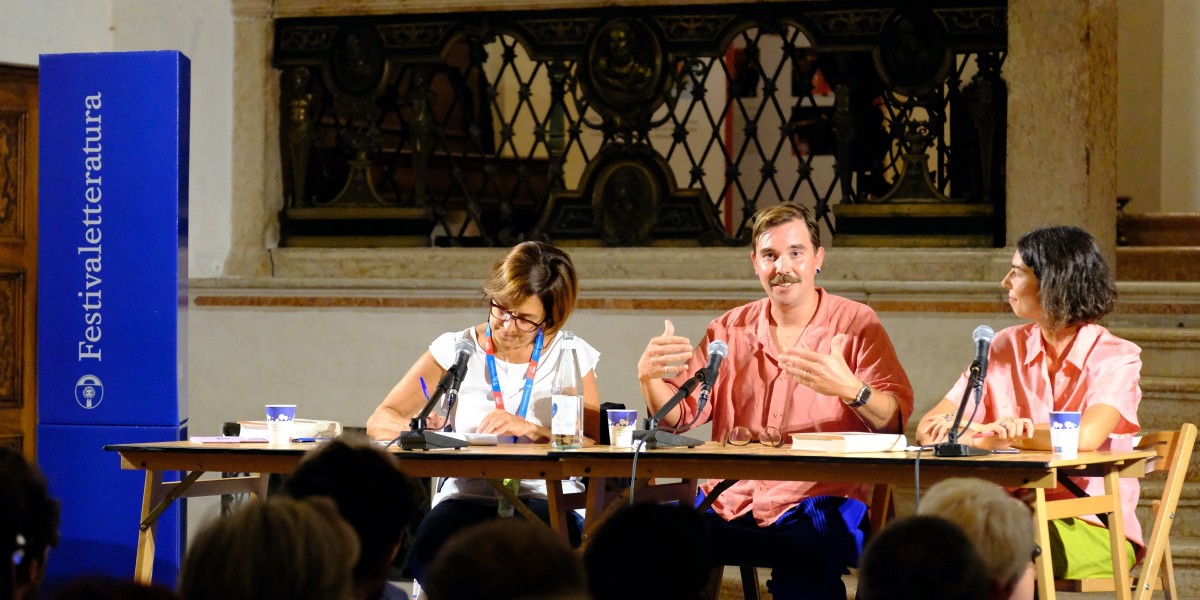
Nature vs. artefact: a journey inside our minds
A lot has been said about Artificial Intelligence (A.I.) during the decades. Theories on the topic have been circulating since Alan Turing researched and developed the Turing Test in the Fifties, and the theme is all over science-fiction, but there is no doubt that questions on A.I. and its role in society have become all the more relevant in the last couple of years.
At the atmospheric Basilica Palatina di Santa Barbara at Palazzo Ducale, James Bridle, writer and artist, author of Ways of Being: Beyond Human Intelligence, together with Stella Succi, invites a full room of spectators to reflect on the following themes: what is intelligence and how can you define it? Can you define it? What is Artificial Intelligence and how can it be part of our society in a sustainable way?
These are not easy questions, and Bridle's main aim is to give his audience some food for thought. With examples and biological facts that include octopi (considered to be the most intelligent non-human creature), gibbons (which for a long time, were considered as intelligence-lacking, when really they just perceive the world in a different way), and mimosa pudica (an experiment by Monica Gagliano's team in collaboration with the University of Western Australia concluded that this type of plant can learn and remember things and events), the notion that intelligence can be defined according to human, and especially Western standards, appears to be very limiting. Intelligence has many shapes and layers, and it's an active process: only from openness and interaction can humans (and non-humans) really express and develop it.
In this light, is Artificial Intelligence, a product evolved by human beings, artificial at all? Maybe not. And maybe a change of perspective is needed. Alternatives to traditional binary systems do exist. Eastern philosophies can teach Western science to accept Nature without feeling separated from it, and more flexibility can go a long way in making our relationship with Artificial Intelligence more sustainable – for example, abandoning old schemes and hierarchies on what we know and what we don't, and accepting that phenomena that we don't see happen or work can still exist.



